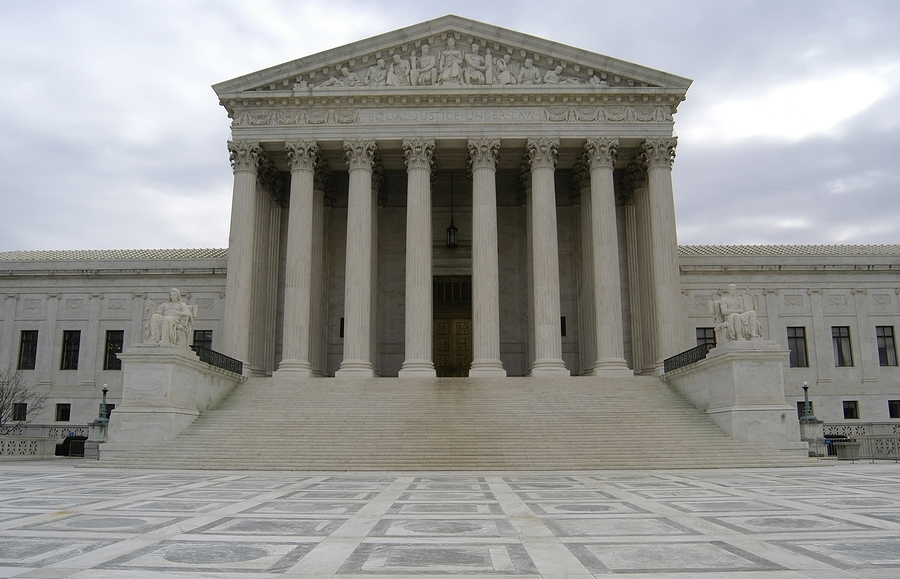This U.S. Supreme Court Case Could Change Everything
You may not know it, but we are on the cusp of one of the most important court decisions regarding sales tax in decades. This case is such a big deal that its ramifications could send shockwaves through the sales and use tax world and permanently change the way we think about sales tax nexus.
I’m referring to South Dakota v. Wayfair, Inc., which is shaping up to be the new pivotal case regarding sales tax nexus for remote sellers, such as internet retailers. South Dakota v. Wayfair revolves around the concept of economic nexus.
On January 12, 2018, the U.S. Supreme Court agreed hear the case, and sales and use tax practitioners everywhere are pondering the outcome. A little background on this case will help explain how we got to this point.
On March 22, 2016, South Dakota Governor Dennis Daugaard signed into law economic nexus legislation, effective May 1, 2016, that added sales and use tax collection requirements for remote sellers who meet certain sales thresholds and makes sales into South Dakota. Under the legislation, a seller would be liable to collect and remit sales and use tax in South Dakota if the seller meets either of the following criteria in the previous or current calendar year:
- The seller’s gross revenue from the sale of tangible personal property, any product transferred electronically, or services delivered into South Dakota exceeds $100,000; or
- The seller sold tangible personal property, any product transferred electronically, or services for delivery into South Dakota in 200 or more separate transactions.
In an interesting twist, the legislation provided an expedited appeals process for any challenges to the constitutionality of the law. The legislation also provided that enforcement of the law will be “stayed by the courts until the constitutionality of this law has been clearly established by a binding judgment, including, for example, a decision from the Supreme Court of the United States abrogating its existing doctrine, or a final judgment applicable to a particular taxpayer.”

Including these items in the legislation was very likely a response to an earlier decision by the U.S. Supreme Court. In Direct Marketing Association v. Brohl, another very significant court case regarding the sales and use tax obligations of remote sellers, the U.S. Supreme Court held that a federal district court has jurisdiction over a lawsuit challenging the constitutionality of Colorado’s reporting requirements legislation for out-of-state retailers and could enjoin enforcement of the requirements.
In the Direct Marketing Association Supreme Court’s decision, Justice Anthony Kennedy said “Given these challenges in technology and consumer sophistication, it is unwise to delay any longer a reconsideration of the Court’s holding in Quill. A case questionable even when decided, Quill now harms States to a degree far greater than could have been anticipated earlier”. He added “The legal system should find an appropriate case for this Court to reexamine Quill and Bellas Hess.”
South Dakota obliged, when on March 6, 2017, the South Dakota Sixth Judicial Court ruled that the state’s economic nexus legislation is unconstitutional. In the ruling, the state acknowledged that under Quill Corp. v. North Dakota, the State of South Dakota is prohibited from imposing the sales tax collection and remittance obligations. The court ruled that the statute was unconstitutional. The state immediately appealed to the South Dakota Supreme Court which heard the case.
On September 13, 2017, the South Dakota Supreme Court struck down the state’s economic nexus legislation, concurring with the South Dakota Sixth Judicial Court’s ruling that the legislation conflicts with Quill Corp. v. North Dakota and is unconstitutional. And in record time, the state again appealed to the U.S. Supreme Court within weeks.
On October 2, 2017, South Dakota filed a petition for certiorari with the U.S. Supreme Court to take up South Dakota v. Wayfair, Inc. in an effort to overturn Quill Corp. v. North Dakota. And then, again in a short time, on January 12, 2018, the U.S. Supreme Court agreed to take up South Dakota v. Wayfair, Inc.
This is a really big deal! The U.S. Supreme Court agreeing to hear this case is the most important sales tax development I’ve seen in a very long time. And it has been 26 years since the high court has taken a sales tax nexus case – and 51 years since the case before. Many believe that this is a long overdue reconsideration of the Quill Corp. v. North Dakota decision, which didn’t account for the current landscape of internet sellers. To put it in perspective, the last time the Court addressed sales tax nexus:
- Our president was George H.W. Bush
- NAFTA was signed
- Ross Perot ran as an independent candidate for president
- Bill Clinton was elected president
- The Great Chicago Loop Sewer Flood occurred
- The Mall of America opened
- Euro Disney opened
- TWA declared bankruptcy
- Windows 3.1 was released by Microsoft
- There were 10 websites and no internet users
The world has changed so much since 1992 – and so has sales tax automation. In 1992, the options and functionality available wer very limited – Vertex and Taxware were the only providers of tax automation and it was expensive and challenging to integrate tax automation. Today, the number of providers is vast, cloud hosted solutions are available, and pricing models have evolved. I recently did some research on this and wrote an article that was published by State Tax Notes. It was an interesting walk down memory lane but also very eye opening as to where we were and how far this industry has come!
Will the Supreme Court continue the rapid speed we’ve seen so far on this case? Some think we could have a decision by the Supreme Court by the end of June, but it may take longer than that. Will the states hold off on passing legislation on remote sellers this year in anticipation of a decision? I doubt that. It goes without saying that we’ll be monitoring this situation closely and will keep you updated with the latest developments. If you aren’t already, follow the Sales Tax Institute’s Twitter account for the most timely updates.
South Dakota is one of many states that have enacted remote seller nexus legislation over the last several years. In fact, the first part of 2018 is filled with important effective dates and deadlines for remote seller nexus legislation. Keep in mind that the notice and reporting rules are often more onerous and carry higher penalties for noncompliance than registering to collect the tax!
Effective January 1, 2018, remote sellers, referrers and marketplace facilitators must elect to either collect and remit Washington sales or use tax on taxable sales into Washington or comply with notice and reporting requirements. The first due date for annual reports and notices is February 28, 2018. For more details, visit our news item.
Under Rhode Island’s recently enacted economic nexus and reporting requirements legislation, notices must be sent to in-state customers by January 31, 2018 and communication with the state regarding compliance is due February 15, 2018. Additionally, beginning January 15, 2018, a retail sale facilitator must provide the Division of Taxation with specified information about retailers with whom the facilitator worked.
Per Colorado’s reporting requirements legislation, the first annual summaries of customer purchases required of non-collecting retailers must be mailed to customers by January 31, 2018. The first customer information reports required of non-collecting retailers must be filed with the state by March 1, 2018.
Louisiana’s reporting requirements legislation requires remote sellers to send annual notices to Louisiana purchasers by January 31, 2018. By March 1, 2018, remote sellers must file annual reports with the state.
Per Pennsylvania’s recently enacted nexus legislation, the notice requirements and requirements for providing reports to the Department of Revenue are effective February 1, 2018, and will apply for transactions beginning on April 1, 2018, for sales of products and services other than digital products and related services; and are effective February 1, 2019, and will apply for transactions beginning on April 1, 2019, for digital products and related services. The annual notices will be required starting in 2019 for the 2018 activities
And Massachusetts took the aggressive approach and sued Amazon to obtain the list of all third sellers with inventory in a Massachusetts warehouse that they can impose tax collection responsibilities due to physical presence. Amazon turned over the list on January 26, 2018.
In my opinion, the days are numbered when remote sellers won’t have some sort of tax collection or reporting requirements in every state. The question is will it be to a Supreme Court decision, Federal legislation or a patchwork of crazy state rules. My preference is a national standard – that will be easier on everyone. It’s time to resolve this issue. Let’s hope the Supreme Court gives us a real decision and doesn’t just toss it back to Congress as we’ve waited since 1992 for them to follow the direction given them in the Quill decision to no avail.
For more details on the deadlines for all of the above pieces of legislation, please click on the links in the paragraphs. Also be sure to bookmark our Remote Seller Nexus Chart, which we regularly update with newly enacted remote seller nexus legislation. We’ll continue to monitor and keep you updated on all the exciting developments that are taking place.
 About the Author:
About the Author: